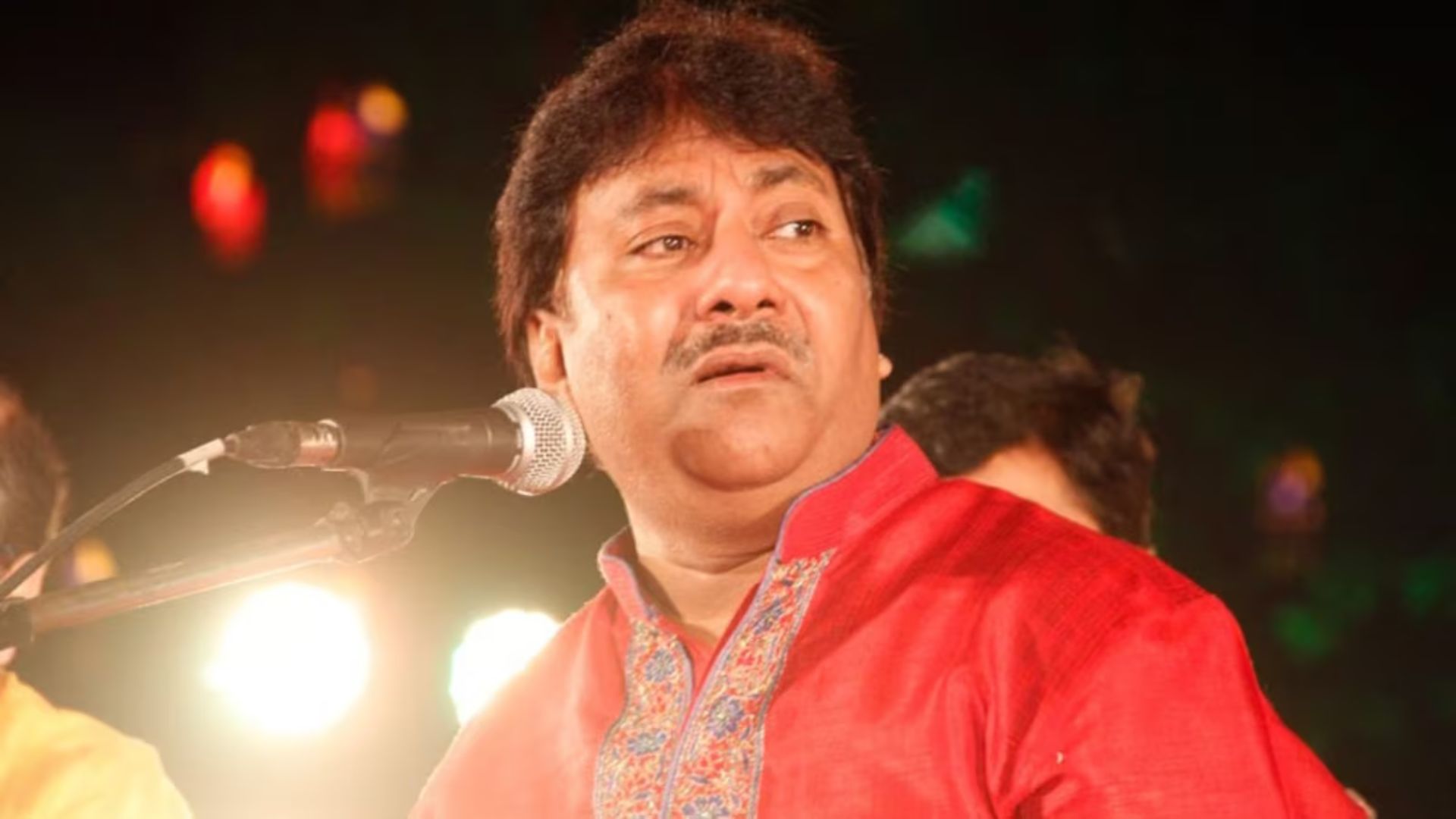Ustad Rashid Khan Wikipedia, Wife, Who Is, Image, Picture, Children, Biography, Death Reason, Age
Ustad Rashid Khan Wikipedia, Wife, Who Is, Image, Picture, Children, Biography, Death Reason, Age – Ustad Rashid Khan, a luminary in the realm of Indian classical music, left an indelible mark on the cultural heritage of Hindustani music. His journey from the enchanting bylanes of Sahaswan, Badayun, Uttar Pradesh, to the global stage is a testament to his unparalleled talent, dedication, and contributions to the world of music.
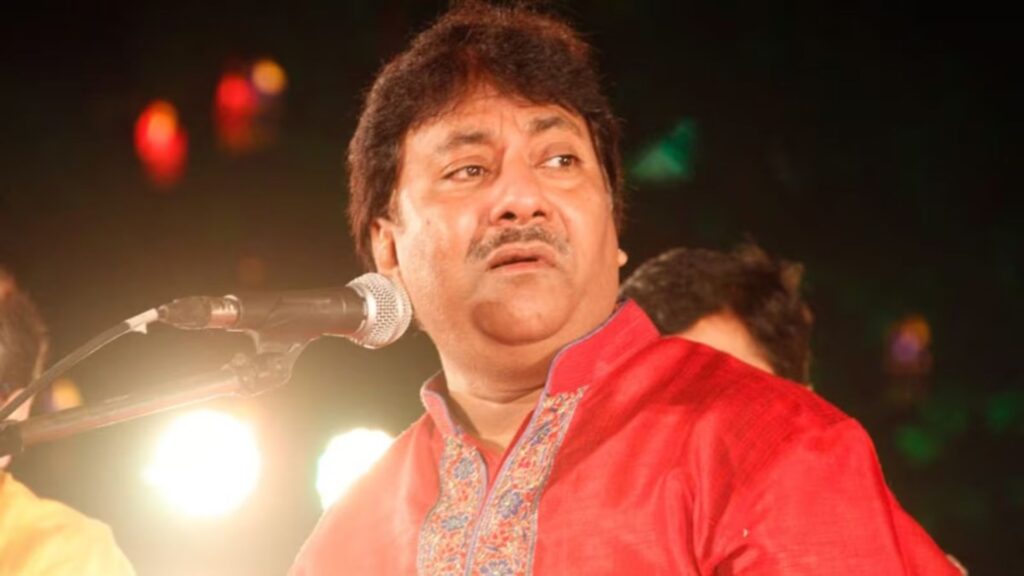
Ustad Rashid Khan Biography:
| Category | Information |
|---|---|
| Full Name | Ustad Rashid Khan |
| Birth Date | July 1, 1968 |
| Birthplace | Badayun, Uttar Pradesh, India |
| Musical Lineage | Rampur-Sahaswan gharana |
| Contribution | Hindustani Classical Music |
| Notable Achievements | Padma Shri, Sangeet Natak Akademi Award, Padma Bhushan |
| Family | Married to Soma Khan, son Armaan |
| Musical Style | Influenced by Rampur-Sahaswan gayaki |
| Career Highlights | Joined ITC Sangeet Research Academy at 14 |
| Legacy | Significant contributions to Indian vocal music |
Ustad Rashid Khan Singer Wikipedia:
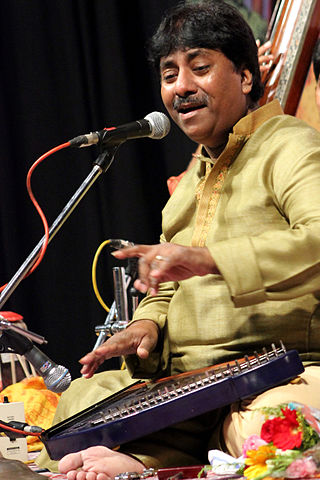
Born on July 1, 1968, in the musical tapestry of Sahaswan, Rashid Khan’s early years did not immediately foretell the maestro he would become. His uncle, Ustad Ghulam Mustafa Khan, and maternal grand-uncle, Ustad Nissar Hussain Khan, recognized his latent musical talents. Under the strict yet nurturing guidance of Nissar Hussain Khan, Rashid Khan’s journey into the world of music began, starting with disciplined training at the tender age of four.
Ustad Rashid Khan Physical Measurements
Beyond the mellifluous notes that defined Rashid Khan’s career, his physical presence also contributed to his charismatic stage persona. Standing at a height that commanded attention, his stage presence was as remarkable as his vocal prowess. Physical measurements, however, merely scratched the surface of the immense talent that lay within.
Ustad Rashid Khan Education Qualification:
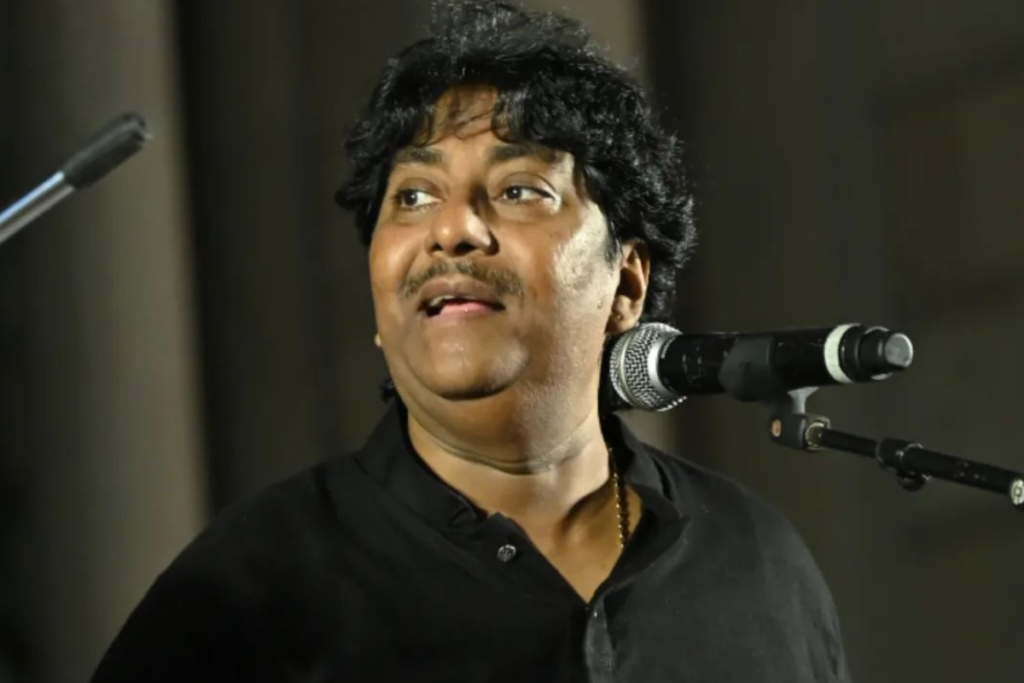
Rashid Khan’s formal education in music unfolded at the prestigious ITC Sangeet Research Academy in Calcutta when, at the age of 14, he joined under the guidance of Nissar Hussain Khan. This marked a pivotal juncture in his educational journey, where theoretical knowledge intertwined seamlessly with the practical aspects of his musical training.
Ustad Rashid Khan Family Background:
Ustad Rashid Khan’s family background is steeped in musical heritage. As the great-grandson of gharana founder Inayat Hussain Khan, he inherited not just a legacy but a responsibility to preserve and advance the rich traditions of the Rampur-Sahaswan gharana. His close-knit family, including his wife Soma Khan and son Armaan, played an integral role in supporting his musical odyssey.
Rashid Khan Wife:
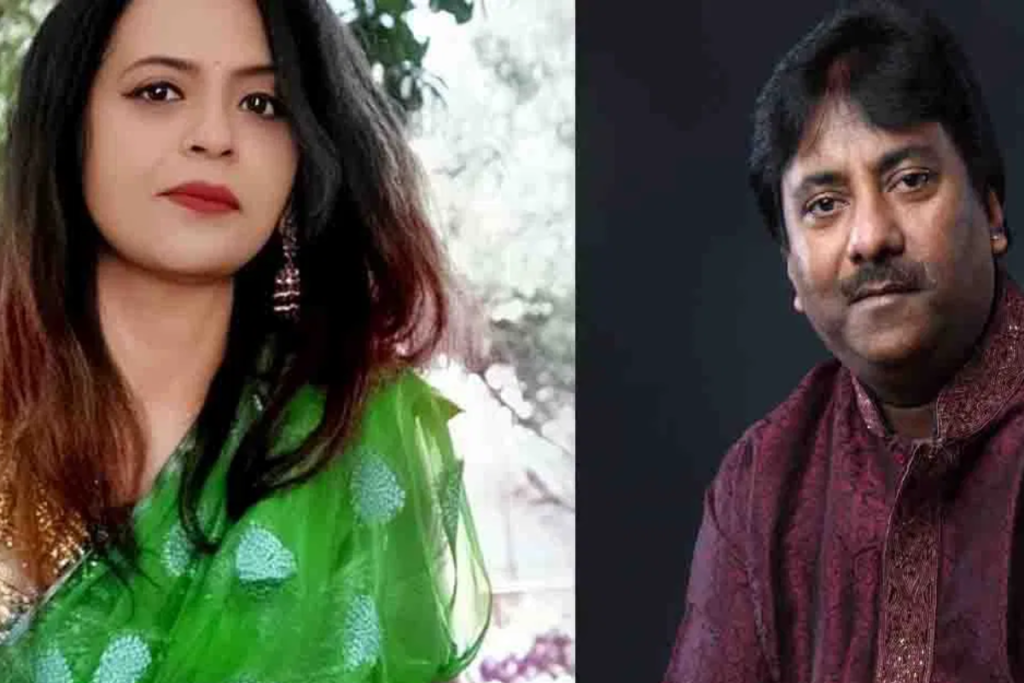
The personal life of Ustad Rashid Khan was a harmonious blend of familial bonds and musical pursuits. His marriage to Soma Khan transcended conventional norms, evolving into a partnership that not only contributed to his personal happiness but also played a pivotal role in his professional success. Together, they witnessed Rashid Khan’s rise to legendary status in the world of Hindustani classical music.
Ustad Rashid Khan Net Worth:
As of 2023, Rashid Khan’s estimated net worth ranged between $1 million and $5 million. This financial success not only underscored his artistic prowess but also highlighted the commercial success that accompanied his illustrious career. Beyond the artistic realm, this aspect of his life added a layer of economic significance to his legacy.
Ustad Rashid Khan Career Beginnings:
Rashid Khan’s career in Hindustani classical music was nothing short of illustrious. Embarking on his musical journey at the age of eleven, he gave a glimpse of the brilliance that would follow. Joining the ITC Sangeet Research Academy at 14 under the tutelage of Nissar Hussain Khan marked a crucial phase in his career. Acknowledged as a musician in 1994, Rashid Khan became a torchbearer of the Rampur-Sahaswan gayaki, characterized by its distinctive tempo, resonant voice, and intricate rhythmic play.
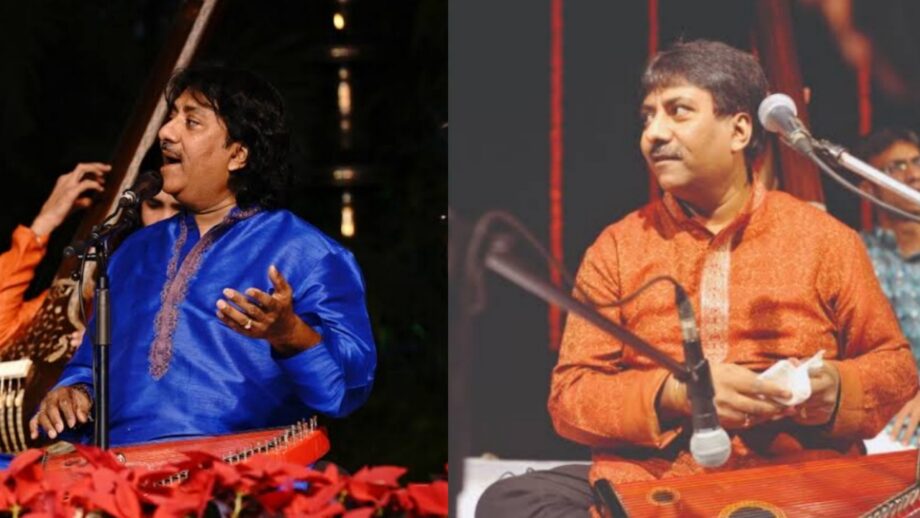
His mastery extended to the tarana, and he incorporated slow elaboration in his vilambit khayals, showcasing the influence of legends like Amir Khan and Bhimsen Joshi. Beyond traditional confines, Rashid Khan delved into fusion, blending Hindustani music with lighter genres, and engaged in jugalbandis, demonstrating his versatility and innovation in classical music.
Career Milestones and Musical Style: At the tender age of eleven, Rashid Khan gave his first concert, a precursor to a stellar career that unfolded in subsequent years. Joining the prestigious ITC Sangeet Research Academy in Calcutta at 14 marked a crucial juncture in his musical journey. Acknowledged as a musician by 1994, Rashid Khan became a torchbearer of the Rampur-Sahaswan gayaki, characterized by medium-slow tempos, a resonant voice, and intricate rhythmic play. His musical style, influenced by legends like Amir Khan and Bhimsen Joshi, showcased emotional depth in melodic elaboration, adding a touch of modernity to the classical genre.
Contributions Beyond Tradition: Rashid Khan’s contributions extended beyond traditional boundaries. He explored fusion by blending Hindustani music with lighter genres, evident in his Sufi fusion recording “Naina Piya Se” and experimental collaborations with Western instrumentalist Louis Banks. Engaging in jugalbandis with sitarist Shahid Parvez and others showcased his versatility, establishing him as a dynamic force in classical music. His willingness to experiment while staying rooted in tradition made him a unique and influential figure in the realm of Indian classical music.
Rashid Khan’s Impact on Indian Vocal Music: Pandit Bhimsen Joshi once aptly termed Rashid Khan as the “assurance for the future of Indian vocal music.” This accolade captures the essence of Rashid Khan’s impact on the realm of classical music. His ability to seamlessly blend tradition with innovation, the emotional depth in his renditions, and his experimental forays into fusion music set him apart. Rashid Khan’s legacy extends far beyond awards and honors; it resides in the hearts of those who continue to be inspired by his artistry.
Songs of Ustad Rashid Khan:
Ustad Rashid Khan, a maestro in Hindustani classical music, has left an enduring legacy through his soul-stirring renditions. Known for his emotional depth, impeccable technique, and versatility, here are some notable songs that showcase the brilliance of Ustad Rashid Khan:
- “Ae Ri Main To Prem Diwani”
- This composition reflects Rashid Khan’s mastery in expressing the nuances of love through the classical medium. The emotive quality in his rendition brings out the timeless essence of the composition.
- “Naina Piya Se”
- A fusion masterpiece, “Naina Piya Se” beautifully combines Sufi elements with classical intricacies. Rashid Khan’s collaboration with Western instrumentalist Louis Banks in this recording demonstrates his willingness to explore diverse musical landscapes.
- “Raag Yaman”
- Rashid Khan’s rendition of Raag Yaman showcases his command over the traditional classical forms. The exploration of the raga’s melodic beauty and intricate improvisations is a testament to his technical prowess.
- “Thumri in Mishra Kafi”
- Thumris, with their emotive and lyrical content, provide a platform for artists to showcase their expressive capabilities. Rashid Khan’s rendition of Thumri in Mishra Kafi exemplifies his ability to infuse soulful emotions into his music.
- “Raag Des”
- The exploration of Raag Des highlights Rashid Khan’s ability to navigate through diverse ragas with finesse. His rendition of Raag Des captures the essence of the raga’s distinct mood and tonal characteristics.
- “Dadra in Raag Bhairavi”
- Rashid Khan’s expertise extends beyond Khayals, and his rendering of a Dadra in Raag Bhairavi is a delightful display of rhythmic play within the semi-classical genre.
- “Bandish in Raag Bihag”
- Raag Bihag, known for its playful and captivating nature, is brought to life through Rashid Khan’s rendition of a traditional bandish. His interpretation adds layers of complexity and beauty to this popular raga.
- “Thumri in Raag Bhairavi”
- Rashid Khan’s Thumri in Raag Bhairavi exemplifies the delicate art of expressing emotions through classical music. The graceful and emotive nature of this rendition captures the essence of Thumri.
- “Sufi Kalaam – Ya Ghous Pak”
- Ustad Rashid Khan’s exploration of Sufi Kalaam, as seen in “Ya Ghous Pak,” transcends the boundaries of classical and devotional music. His rendition reflects the spiritual essence of Sufi poetry.
- “Tappa in Raag Des”
- Tappa, a challenging and fast-paced form, is impeccably executed by Rashid Khan in Raag Des. His command over intricate taans and swift melodic transitions is evident in this energetic performance.
These songs, among many others in his vast repertoire, stand as a testament to Ustad Rashid Khan’s enduring contribution to the world of classical and fusion music. Each performance is a journey into the soul of Indian classical traditions, showcasing his unique style, innovation, and unwavering dedication to the art form.
Ustad Rashid Khan Social Media:
| Category | Information |
|---|---|
| Click Here | |
| Click Here | |
| Click Here |
Ustad Rashid Khan Awards:
Rashid Khan’s contributions to the world of classical music earned him prestigious awards and honors. In 2006, he received the Padma Shri and the Sangeet Natak Akademi Award, acknowledgments of his significant impact on the cultural landscape. The pinnacle of recognition came in 2022 when he was honored with the Padma Bhushan, India’s third-highest civilian award, reaffirming his outstanding contributions to the field of art.
Ustad Rashid Khan Died
Tragically, the music world bid farewell to Ustad Rashid Khan on January 9, 2024. After a prolonged battle with prostate cancer, he passed away at a private hospital in Kolkata at the age of 55. His death marked the end of an era in Hindustani classical music, leaving behind a void that echoed with the melodies of his illustrious career.
Ustad Rashid Khan Facts:
- Musical Lineage: Rashid Khan hailed from the Rampur-Sahaswan gharana, a lineage that traces its roots to the founder Inayat Hussain Khan.
- Influence of Bhimsen Joshi: Pandit Bhimsen Joshi hailed Rashid Khan as the “assurance for the future of Indian vocal music,” recognizing his immense contribution to the art.
- Versatility in Fusion: Beyond classical boundaries, Rashid Khan explored fusion, collaborating with Western instrumentalist Louis Banks and creating Sufi fusion recordings like “Naina Piya Se.”
- Discipline in Training: Rashid Khan’s disciplined training, starting at an early age, laid the foundation for his mastery of taan and layakaari.
- Legacy in Prostate Cancer Awareness: Rashid Khan’s battle with prostate cancer brought attention to the importance of awareness and early detection in the fight against this disease.
Conclusion:
In conclusion, Ustad Rashid Khan’s life was a symphony of talent, dedication, and innovation. From his early years in Sahaswan to the global acclaim on prestigious stages, he left an indelible mark on the world of Indian classical music. Beyond the awards and recognition, Rashid Khan’s legacy lives on in the hearts of those touched by his music. As we remember the maestro, we celebrate not just a musician but a cultural icon whose influence transcends generations, leaving an everlasting imprint on the fabric of classical art.
Also Read:
- Chaitra Kundapura Age Wikipedia, Birthday Date, Case, Speech, Controversy
- Akshata Murthy School, Young, Net Worth, Wikipedia, Wiki, Birthday, Kids, Height, Father Mother
FAQ:
Who is Ustad Rashid Khan?
Ustad Rashid Khan was a highly respected and talented Indian classical musician known for his beautiful singing in the Hindustani music tradition. Born on July 1, 1968, in Badayun, Uttar Pradesh, India, he belonged to the Rampur-Sahaswan gharana, a distinguished musical lineage. Ustad Rashid Khan played a crucial role in preserving and advancing the rich traditions of this gharana, making significant contributions to Indian vocal music. His remarkable talent and dedication earned him accolades, awards, and a special place in the hearts of music enthusiasts.
Ustad Rashid Khan Cause of Death?
Ustad Rashid Khan passed away on January 9, 2024. The cause of his death was a prolonged battle with prostate cancer. Despite seeking medical attention and initially responding positively to treatment, his health took a turn for the worse in December 2023. He was admitted to a hospital in Kolkata, where he was placed on a ventilator for oxygen support. Unfortunately, at the age of 55, he succumbed to the challenges posed by his battle with cancer. His death marked the end of a chapter in the world of Indian classical music, leaving behind a rich legacy of musical brilliance.
